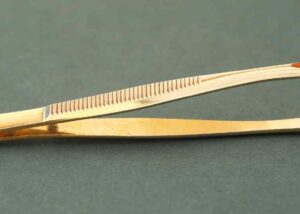I have heard some people saying that it is Haram for a woman to cut her hair, is this true?
Quran
Hadith
Islamic Text
It is not Haram for a woman to cut her hair, unless she cuts it in a manner that resembles males. Imam Ibn Abideen explained that the concern with women cutting their hair is the issue of resembling men.
عَنِ ابْنِ عَبَّاسٍ رَضِيَ اللَّهُ عَنْهُمَا قَالَ: لَعَنَ رَسُولُ اللَّهِ صَلَّى اللهُ عَلَيْهِ وَسَلَّمَ المُتَشَبِّهِينَ مِنَ الرِّجَالِ بِالنِّسَاءِ، وَالمُتَشَبِّهَاتِ مِنَ النِّسَاءِ بِالرِّجَالِ
(Sayidina) Ibn Abbas (May Allah Most High be pleased with them both) narrated that the Messenger of Allah ﷺ cursed women who imitate men and men who imitate women. (Sahih al-Bukhari, 5885).
When it comes to women cutting their hair, there is no absolute prohibition in place. Rather the concern is women cutting their hair so short that it resembles men. This is prohibited since blurring the lines between the genders is prohibited and cursed in Islam.
This concern was raised by Hanafi scholars when they discussed the issue of women cutting their hair. Therefore, a woman should make sure her hair is always beyond shoulder length when having it cut. Thus avoiding the imitation of men.
وإذا حلقت المرأة شعرها؛ فإن حلقت لوجع أصابها فلا بأس به، وإن حلقت تشبهاً بالرجال فهو مكروه، وهي ملعونة على لسان صاحب الشرع. (المحيط البرهاني في الفقه النعماني)
If a woman shaves her hair, then if it was due to pain that she was experiencing then there is no issue. However, if she shaved it to imitate men then it is disliked. She is cursed on the tongue of the law giver. (Imam Burhan al-Deen al-Bukhari, al-Muheet al-Burhaani).
قَطَعَتْ شَعْرَ رَأْسِهَا أَثِمَتْ وَلُعِنَتْ زَادَ فِي الْبَزَّازِيَّةِ وَإِنْ بِإِذْنِ الزَّوْجِ لِأَنَّهُ لَا طَاعَةَ لِمَخْلُوقٍ فِي مَعْصِيَةِ الْخَالِقِ، وَلِذَا يَحْرُمُ عَلَى الرَّجُلِ قَطْعُ لِحْيَتِهِ، وَالْمَعْنَى الْمُؤَثِّرُ التَّشَبُّهُ بِالرِّجَالِ
(قَوْلُهُ وَالْمَعْنَى الْمُؤَثِّرُ)
أَيْ الْعِلَّةُ الْمُؤَثِّرَةُ فِي إثْمِهَا التَّشَبُّهُ بِالرِّجَالِ. (رد المحتار على الدر المختار)
Imam al-Haskafi: If she cut her hair then she will be sinful and cursed. In al-Bazaziyyah he added, even if it is done with the permission of the Husband. This is because there is no obedience to creation in disobedience to the creator. This (the issue of resembling the opposite gender) is why it is prohibited for a man to cut his beard (very short). The factor that causes (the prohibition) is resembling men.
Imam Ibn Abideen: His saying, The factor that causes (the prohibition), meaning the legal cause (Illah) for her being sinful is resembling men. (Radd al-Muhtaar ala al-Durr al-Mukhtaar).
The Hanafi Nusoos (texts) above mention that women are cursed for cutting their hair, and the Hadith above speaks about women being cursed for imitating men. Thus there is a clear connection between the rulings. Therefore, the prohibition upon women cutting hair is not absolute or even general. Rather it is specific to the imitation of men.
This limitation to the prohibition is further strengthened by the fact that the noble wives of the Holy Prophet ﷺ used to cut their hair.
عَنْ أَبِي سَلَمَةَ بْنِ عَبْدِ الرَّحْمنِ، قَالَ: وَكَانَ أَزْوَاجُ النَّبِيِّ صَلَّى اللهُ عَلَيْهِ وَسَلَّمَ يَأْخُذْنَ مِنْ رُءُوسِهِنَّ حَتَّى تَكُونَ كَالْوَفْرَةِ
Abu Salamah bin Abd al-Rahman narrated that the wives of the Prophet ﷺ cut their hair until it was like a Wafrah. (Sahih Muslim, 320 – 42).
The sound understanding is that a Wafrah is hair that extends beyond the shoulders. Thereby maintaining a difference between male and female hair length. Had there been an absolute prohibition upon cutting the hair, then the blessed wives of the Prophet ﷺ would not have cut their hair short.
الْوَفْرَةُ أَشْبَعُ وَأَكْثَرُ مِنْ اللُّمَّةِ وَاللُّمَّةُ مَا يَلِمُّ بِالْمَنْكِبَيْنِ مِنَ الشَّعْرِ قَالَهُ الْأَصْمَعِيُّ وَقَالَ غَيْرُهُ الْوَفْرَةُ أَقَلُّ مِنَ اللُّمَّةِ وَهِيَ مَا لَا يُجَاوِزُ الْأُذُنَيْنِ. (المنهاج شرح صحيح مسلم بن الحجاج)
The Wafrah is more copious and greater than the Lammah. The Lammah is hair that aligns with the shoulders, this was mentioned by al-Asma’ee. Another (scholar) said, it is less than a Lammah, which is beyond the ears. (Imam Yahya bin Sharaf al-Nawawi, Sharh Sahih Muslim).
وَفِيهِ دَلِيلٌ عَلَى جَوَازِ تَخْفِيفِ الشُّعُورِ لِلنِّسَاءِ. (المنهاج شرح صحيح مسلم بن الحجاج)
In it is evidence to prove the permissibility of cutting hair for women. (Imam al-Nawawi, Sharh Sahih Muslim).
Due to clear evidence (Adilah) and references (Nusoos) it is correct to say that women are permitted to cut their hair. However, in doing so they must not resemble men, since that is strictly prohibited and cursed.
When reflecting upon other legal rulings it becomes further apparent that women are permitted to cut their hair. Had there been an absolute ban upon women cutting their hair then they would not be required to do so during Hajj and Umrah. When exiting Ihram (state of pilgrim sanctity) women are not only permitted but rather required to cut their hair.
And Allah Most High Knows Best.
-Answered by Shaykh Noorud-deen Rashid (24.03.2023)
See also:
When women finish Umrah can they cut each other’s hair?
If losing hair, can you wear a wig? Are hair extensions allowed?






